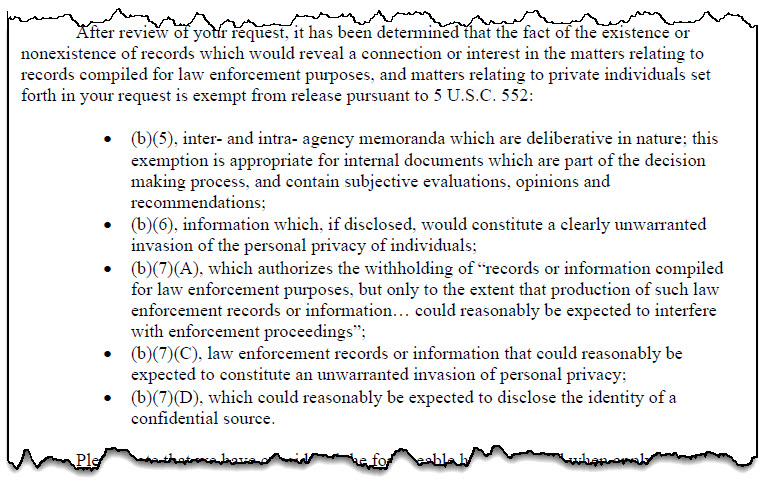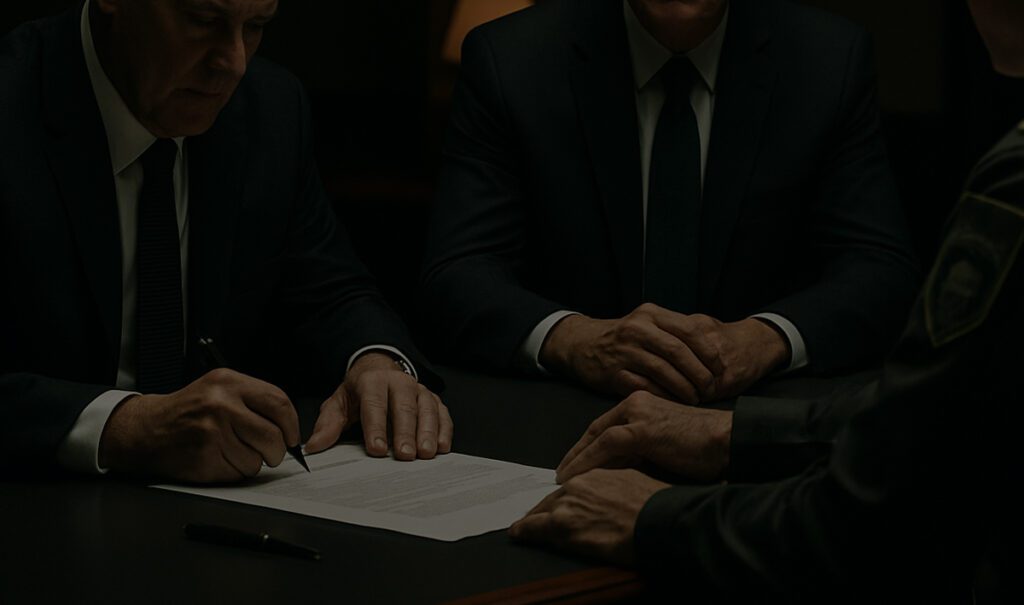In March 2024, the Department of Defense (DoD) published publicly its Report on the Historical Record of U.S. Government Involvement with Unidentified Anomalous Phenomena (UAP) – Volume I. Buried on page 32 was this passage:
 The language was clear. Not only did the All-domain Anomaly Resolution Office (AARO) meet with aerospace company officials, but those executives gave formal, on-the-record denials that their firms were involved in alleged crash retrieval or reverse-engineering programs involving “extraterrestrial craft”.
The language was clear. Not only did the All-domain Anomaly Resolution Office (AARO) meet with aerospace company officials, but those executives gave formal, on-the-record denials that their firms were involved in alleged crash retrieval or reverse-engineering programs involving “extraterrestrial craft”.
Following this admission, a Freedom of Information Act (FOIA) request was filed by The Black Vault seeking the release of those very statements. The request asked for both classified and/or unclassified versions of the records, with the understanding that the government itself had already acknowledged their existence in its public report.
However, despite its own published acknowledgement, the Department of Defense denied the request in full. In a final response letter dated September 5, 2025, the Office of the Secretary of Defense invoked a “Glomar” response — refusing to confirm or deny whether any records exist at all. The denial cited FOIA exemptions (b)(5), (b)(6), (b)(7)(A), (b)(7)(C), and (b)(7)(D) as justification for withholding.

The reasoning presented a paradox: the DoD’s public report had already confirmed the existence of such records, yet when pressed under FOIA, the agency reversed course, claiming it could neither confirm nor deny them.
An appeal was quickly filed on September 6, 2025, challenging the denial. The appeal argues that the cited exemptions do not apply to the requested material and highlights the inconsistency of the government’s position.
Among the key points:
- Exemption (b)(5), typically covering deliberative and predecisional agency memoranda, cannot apply to finalized company statements already acknowledged in a public report.
- Exemptions (b)(6) and (b)(7)(C), meant to protect personal privacy, are not relevant to official statements made by corporate executives speaking in their professional capacity.
- Exemptions (b)(7)(A) and (b)(7)(D), intended for law enforcement records, have no rational nexus to AARO’s historical review of UAP matters.
Most importantly, once the government has officially acknowledged the existence of specific records, FOIA case law holds that it cannot later refuse to confirm or deny them.
The appeal calls on the DoD to reverse its denial, release the responsive statements, or at minimum produce a detailed Vaughn index explaining any continued withholding.
This case centers around not the disclosure of classified crash retrieval programs, which the public knows officials already denied to exist, but the release of the denials themselves. In effect, the Pentagon is refusing to release the very statements it cited as proof that such programs are not taking place.
The outcome of the appeal will determine whether those “on-the-record” statements remain hidden, or whether the government will be compelled to reconcile its public reporting with its obligations under FOIA. The results will be posted, when available.
###
Document Archive
FOIA Final Response Letter – September 5, 2025
